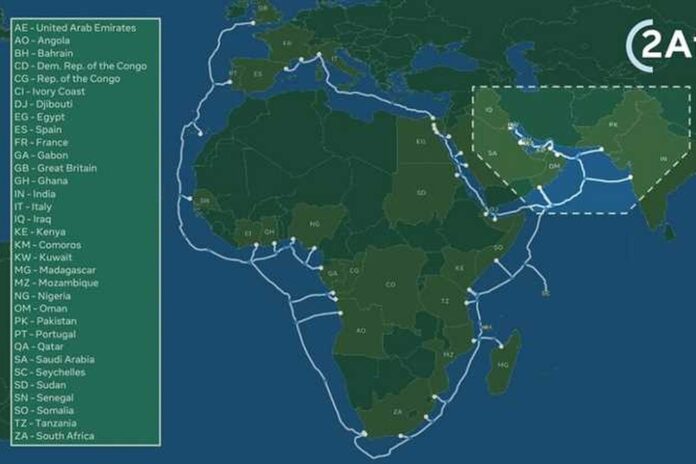2Africa is the world’s largest fibre cable system, connecting three continents and delivering more internet capacity to Africa than all the others that connect it today
Vodafone Group has landed 2Africa, the world’s largest subsea cable system in the UK, which will bring better internet connections to billions of people globally. The landing site is at the UK cable hub in Bude, Cornwall. Vodafone has been the partner for 11 landings of the subsea cable so far.
2Africa will improve connectivity between Africa and the rest of the world, and support the continent’s expected demand for services like mobile and fixed broadband. The landing in Cornwall will facilitate connectivity for UK businesses wanting to deliver digital services to Africa, and vice versa.
The cable has capacity of 180Tbps and will be the first system to provide continuous capacity around the African continent, connecting 33 countries in Europe, Africa and Asia.
It was launched in May 2020 and when completed, it will be over 45,000km long; that is, long enough to span the Earth’s circumference.
As the lead partner for the UK landing, Vodafone will be responsible for managing the physical cable coming ashore, burial on the beach and installation into a new, purpose built beach manhole where 2Africa will connect to terrestrial cable routing back to the existing Vodafone Cable Landing Station.
Vodafone will also provide 2Africa with onward connectivity via two diverse terrestrial infrastructure and fibre routes linking to the London area.
The 2Africa consortium is made up of eight international partners: Bayobab; Center3; China Mobile International; Meta; Orange; Telecom Egypt; Vodafone Group; and WIOCC. Alcatel Submarine Networks is responsible for the manufacture and installation of the 2Africa cable.
Vodafone owns dual fibre cables that have a lifespan of 25 years within the subsea infrastructure and recently started carrying customers’ traffic on them. They twin fibre pairs are named after Vodafone Group’s Head of Subsea Partnerships, Rick Perry and referred to as SHARP (the System Honouring the Achievements of Rick Perry).
Perry has been involved in the cable project since the beginning and the naming of the Vodafone cable recognises his 50 years in international communications. He attended the Cable & Wireless training college in nearby Porthcurno and is now a trustee for the PK Porthcurno Museum of Global Communications (pictured – and highly recommended by the editor, you enter via a bombproof, underground tunnel dug with the help of Welsh miners in World War II) which sits on the site of the college.
Vodafone’s experience in subsea cables can be traced back, through its ancestors, to the landing of its first telegraph cable in Porthcurno, Cornwall in 1870. The company continues to be one of the largest investors in subsea cable systems with capacity on around 80 systems that reach 100 countries.
More information on Vodafone global infrastructure activity is available here.



